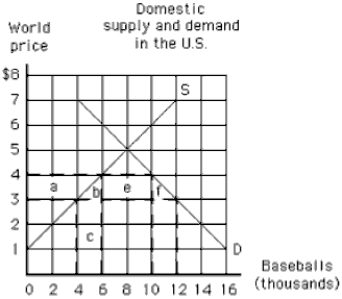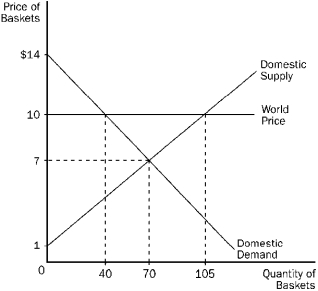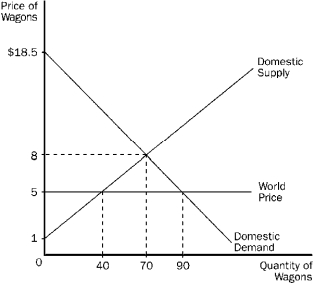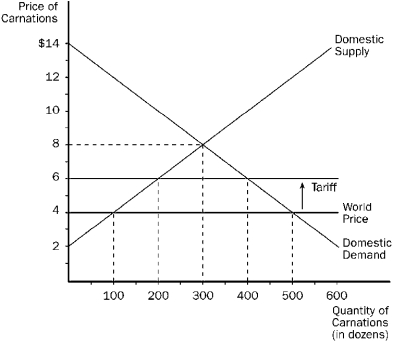Exam 18: Gaining From International Trade
Exam 1: The Economic Approach164 Questions
Exam 2: Some Tools of the Economist200 Questions
Exam 3: Demand, Supply, and the Market Process336 Questions
Exam 4: Supply and Demand: Applications and Extensions254 Questions
Exam 5: Difficult Cases for the Market, and the Role of Government130 Questions
Exam 6: The Economics of Political Action154 Questions
Exam 7: Taking the Nations Economic Pulse214 Questions
Exam 8: Economic Fluctuations, Unemployment, and Inflation174 Questions
Exam 9: An Introduction to Basic Macroeconomic Markets219 Questions
Exam 10: Dynamic Change, Economic Fluctuations, and the Ad-As Model189 Questions
Exam 11: Fiscal Policy: the Keynesian View and the Historical Development of Macroeconomics109 Questions
Exam 12: Fiscal Policy, Incentives, and Secondary Effects146 Questions
Exam 13: Money and the Banking System209 Questions
Exam 14: Modern Macroeconomics and Monetary Policy192 Questions
Exam 15: Stabilization Policy, Output, and Employment148 Questions
Exam 16: Creating an Environment for Growth and Prosperity120 Questions
Exam 17: Institutions, Policies, and Cross-Country Differences in Income and Growth111 Questions
Exam 18: Gaining From International Trade170 Questions
Exam 19: International Finance and the Foreign Exchange Market148 Questions
Select questions type
Figure 17-13  -In Figure 17-13, if the world price of a baseball is $3 and a tariff of $1 per baseball is imposed in the United States, how many baseballs will the United States import?
-In Figure 17-13, if the world price of a baseball is $3 and a tariff of $1 per baseball is imposed in the United States, how many baseballs will the United States import?
Free
(Multiple Choice)
4.8/5  (28)
(28)
Correct Answer:
A
For each watch Denmark produces, it gives up the opportunity to make 50 pounds of cheese. Germany can produce one watch for every 100 pounds of cheese it produces. Which of the following is true with regard to opportunity costs in the two countries?
Free
(Multiple Choice)
4.9/5  (33)
(33)
Correct Answer:
B
The theory of comparative advantage suggests that nations should produce a good if they
Free
(Multiple Choice)
4.8/5  (31)
(31)
Correct Answer:
A
If a foreign supplier sells a good in another country at a cheaper price than it sells the good in its home market, the
(Multiple Choice)
4.8/5  (35)
(35)
If the U.S. imposed an import quota on sugar, then in the U.S.
(Multiple Choice)
5.0/5  (30)
(30)
If a country allows trade and, for a certain good, the domestic price without trade is lower than the world price,
(Multiple Choice)
4.9/5  (25)
(25)
Use the table below to answer the following question. The table outlines the production possibilities for two hypothetical countries.  Which of the following statements is true?
Which of the following statements is true?
(Multiple Choice)
4.8/5  (39)
(39)
Figure 17-13  -In Figure 17-13, the world price of a baseball is $3. With free trade, how many baseballs will the United States import?
-In Figure 17-13, the world price of a baseball is $3. With free trade, how many baseballs will the United States import?
(Multiple Choice)
4.8/5  (33)
(33)
Figure 17-5  -Refer to Figure 17-5. If this country chooses to trade, the price of baskets in this country will be
-Refer to Figure 17-5. If this country chooses to trade, the price of baskets in this country will be
(Multiple Choice)
4.8/5  (29)
(29)
Figure 17-13  -In Figure 17-13, if the world price of a baseball is $3 and a tariff of $1 per baseball is imposed in the United States, which area represents the amount of tariff revenue the United States government collects?
-In Figure 17-13, if the world price of a baseball is $3 and a tariff of $1 per baseball is imposed in the United States, which area represents the amount of tariff revenue the United States government collects?
(Multiple Choice)
4.8/5  (31)
(31)
Figure 17-8  -Refer to Figure 17-8. The horizontal line at the world price of wagons represents the
-Refer to Figure 17-8. The horizontal line at the world price of wagons represents the
(Multiple Choice)
5.0/5  (31)
(31)
An import quota on a product protects domestic industries by
(Multiple Choice)
4.8/5  (43)
(43)
Figure 17-9  -Refer to Figure 17-9. The size of the tariff on carnations is
-Refer to Figure 17-9. The size of the tariff on carnations is
(Multiple Choice)
4.8/5  (31)
(31)
Figure 17-8  -Refer to Figure 17-8. With trade, this country
-Refer to Figure 17-8. With trade, this country
(Multiple Choice)
4.8/5  (37)
(37)
As the result of specialization and trade, according to the law of comparative advantage, total output will
(Multiple Choice)
4.8/5  (38)
(38)
Which of the following restricts the volume of international trade?
(Multiple Choice)
4.8/5  (36)
(36)
When Iceland can generate a product using fewer labor hours and resources than the United States, an economist would say that Iceland had
(Multiple Choice)
4.8/5  (38)
(38)
Showing 1 - 20 of 170
Filters
- Essay(0)
- Multiple Choice(0)
- Short Answer(0)
- True False(0)
- Matching(0)